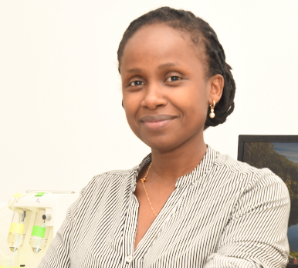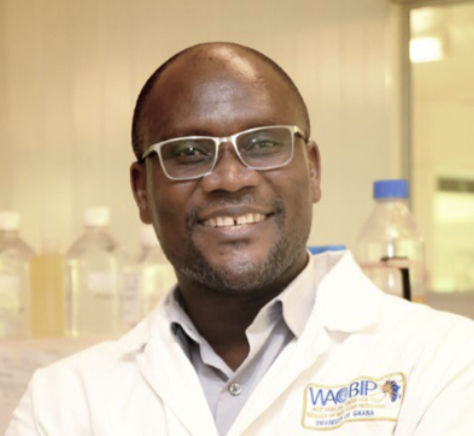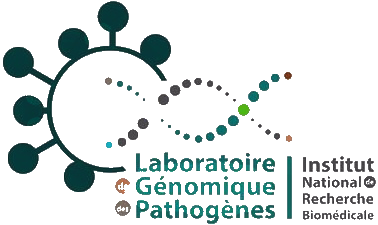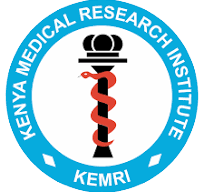The Partner Institutions
The University of Birmingham, United Kingdom
The Institute of Microbiology and Infection (IMI) at the University of Birmingham is one of the largest groupings of microbiologists in the UK. It brings together researchers from multiple disciplines to study the biology of microbes and the diseases they cause. The institute focuses on tackling global health challenges, such as antibiotic resistance and emerging infectious diseases, through innovative research and collaboration. IMI is also dedicated to translating its scientific discoveries into real-world healthcare solutions.
Research at the School of Biosciences at the University of Birmingham focuses on fundamental questions in biology and on global challenges such as food security, climate change and antimicrobial resistance. The teaching at undergraduate and postgraduate level enables graduates to embark on successful careers in the life sciences and beyond. As an integral part of the life sciences community at the University of Birmingham, the team is working with colleagues in the Colleges of Medicine and Health (CMH), and Engineering and Physical Sciences (EPS), and collaborating with industrial partners in the pharmaceutical, agri-food and biotechnology sectors.
The University of Edinburgh, United Kingdom
The University of Edinburgh is one of the world's leading research universities, with a rich history of academic excellence and innovation. Established in 1582, it is the sixth oldest university in the English-speaking world and has consistently been at the forefront of research and education. The University is home to over 40,000 students from more than 150 countries, and its faculty includes some of the most distinguished scholars and researchers in their fields.
The University of Cambridge, United Kingdom
The University of Cambridge is a world-renowned institution with a rich history of academic excellence and innovation. Established in 1209, it is one of the oldest universities in the world and has consistently been at the forefront of research and education. The University is home to over 18,000 students from more than 140 countries, and its faculty includes some of the most distinguished scholars and researchers in their fields.
Institut National de Recherche Biomédicale, The Democratic Republic of the Congo
Institut National de Recherche Biomédicale (INRB) is a leading biomedical research institution in the Democratic Republic of the Congo (DRC). Established in 1987, INRB is dedicated to advancing health research and improving public health outcomes in the DRC and the broader African region. The institute conducts cutting-edge research in various fields, including infectious diseases, genomics, and public health, with a focus on addressing local health challenges.
Simon Fraser University, Canada
Simon Fraser University (SFU) is a leading public research university located in British Columbia, Canada. Established in 1965, SFU has grown to become one of Canada's largest and most prestigious universities, with a strong commitment to research excellence and community engagement. The university is known for its interdisciplinary approach to education and research, fostering innovation and collaboration across various fields.
Swiss Tropical and Public Health Institute, Switzerland
The Swiss Tropical and Public Health Institute (Swiss TPH) is a world-leading institution dedicated to improving global health through innovation in research, education, and services. With a focus on translating scientific evidence into real-world impact, Swiss TPH bridges the gap between cutting-edge scientific research and concrete public health outcomes.
The Evolution of Viruses and Epidemics (EVE) Lab at Swiss TPH focuses on the genomic evolution and spread of viruses, combining bioinformatics, molecular epidemiology, and open data principles. The lab develops tools and methods to support global outbreak response and equitable data sharing, helping transform pathogen surveillance into actionable insights.
West African Centre for Cell Biology of Infectious Pathogens (WACCBIP), Ghana
WACCBIP was established in 2014 as one of the World Bank’s African Centre’s of Excellence (ACE) at the University of Ghana. The mission of the Centre is to improve diagnosis, prevention, and control of infectious and non-communicable diseases in sub-Saharan Africa by providing advanced level training and research excellence in cell and molecular biology. WACCBIP is also supported by the Wellcome Trust and other global health funding institutions.
WACCBIP currently has one of the biggest biomedical research training programmes in West Africa, and the Centre provides an excellent environment for the development of science research leaders. WACCBIP has built state-of-art laboratories with advanced equipment and infrastructure and created one of the most vibrant research hubs in West Africa currently. Its facilities are organized into eight (8) advanced scientific technology platforms for flow cytometry, high-performance computing, next-generation sequencing, advanced microscopy and imaging, protein expression, bioinformatics, data management, and quality management. Over the last eleven years, WACCBIP has supported 276 Master’s students, 137 PhD students, and 63 Postdoctoral fellows from 22 different countries. WACCBIP has also trained more than 2000 health professionals through short courses in a range of technical competences, including advanced microscopy, cell biology, experimental genetics, genome sequencing, bioinformatics, and grant writing. WACCBIP provides an excellent environment for the development of science research leaders in Africa.
Website: www.waccbip.org
Wellcome Trust KEMRI, Kenya
The Wellcome Trust Kenya Medical Research Institute (KEMRI) is a leading health research institution in Kenya, dedicated to improving health outcomes through innovative research and capacity building. Established in 1989, KEMRI is a partnership between the Kenyan government and the Wellcome Trust, a global charitable foundation that supports health research. KEMRI conducts cutting-edge research in various fields, including infectious diseases, genomics, and public health, with a focus on addressing local health challenges.
People

Charles Agoti heads the Pathogen Epidemiology and Omics (PEO) Group at the Kenya Medical Research Institute (KEMRI) - Wellcome Trust Research Programme in Kilifi, Kenya, and is an assistant Principal Research Scientist. His interest is in epidemiology of endemic and emerging respiratory and enteric viruses.

Gordon Awandare is the Pro Vice-Chancellor responsible for Academic and Students Affairs at University of Ghana. He is a Professor of Biochemistry, Cell and Molecular Biology and the Founding Director of the West African Centre for Cell Biology of Infectious Pathogens (WACCBIP).

Caroline Colijn is a professor at Simon Fraser University.

Rachel Colquhoun is a senior researcher at the University of Edinburgh. She develops bioinformatic tools for real-time pathogen surveillance, with a focus on methods for metagenomic sequence data.

Bede Constantinides is a postdoctoral research fellow at the University of Birmingham developing computational methods for (meta)genomic epidemiology.


Ian Goodfellow is a professor at the University of Cambridge.

Emma Hodcroft leads the Epidemiology and Virus Evolution (EVE) group at Swiss Tropical and Public Health Institute, and is an assistant professor at the University of Basel. She specialises in the evolution and phylogenetics of human viral pathogens, and has made key contributions on HIV, SARS-CoV-2, and Enteroviruses.

Chris Kent is a PhD student and Research Assistant at the University of Birmingham, where he develops computational methods for generating primer schemes. He also works to improve the amplicon sequencing community through open-source resources and file specifications.

Nick Loman is a professor at the University of Birmingham.

Placide Mbala Kingebeni is an Associate Professor at the University of Kinshasa, School of Medicine; he is the Head of the Epidemiology and Global Health Division and Director of the Clinical Research Center at the National Institute of Biomedical Research (INRB in French) in the Democratic Republic of the Congo (DRC). Dr. Mbala has extensive experience in medical biology, with specific training and expertise in microbiology, virology, and outbreak investigations.


Collins M. Morang’a is a Wellcome Trust/DELTAS Africa Postdoctoral Fellow at the West African Center for Cell Biology of Infectious Pathogens (WACCBIP), University of Ghana, where he studies structural variation and evolutionary dynamics of infectious pathogens. He has made key contributions to SARS-CoV-2 genomic epidemiology, where he contributed to tracking COVID-19 in Ghana. He trains and mentors young scientists to develop capacity in Bioinformatics for pathogen genomics, pandemic preparedness, and disease surveillance. He has a keen interest in Vaccine Development for infectious diseases.

Sebastian Musundi is a Research Officer at the KEMRI–Wellcome Trust Research Programme, where he specializes in validating sequencing protocols for viral pathogens and investigating the genomic epidemiology of viral diseases.

Elli Mylona is a postdoctoral researcher at the University of Cambridge. She works towards developing and validating sequencing protocols for infectious disease surveillance, as well as training packages for capacity building.

Heads the Next generation sequencing core facility at the West African Centre for Cell Biology of Infectious Pathogens (WACCBIP).

Áine Niamh O'Toole is a senior researcher at the University of Edinburgh, where she studies the evolutionary dynamics of emerging viruses and develops bioinformatics tools for genomic epidemiology.

Osbourne Quaye is a Professor of Molecular Virology and Biochemistry at the Department of Biochemistry, Cell and Molecular Biology, and a Principal Investigator at the West African Centre for Cell Biology of Infectious Pathogens (WACCBIP), University of Ghana.

Josh Quick is a UKRI Future Leaders Fellow at the University of Birmingham. He leads the development of the ARTIC protocols for amplicon and metagenomic sequencing.

Andrew Rambaut is the Professor of Molecular Evolution at the University of Edinburgh. Based in the Institute of Ecology and Evolution he has worked for nearly 30 years on understanding origin and evolution of human and animal viruses.

Sam is a Bioinformatician specialising in Python, Nextflow, and cloud engineering based at the University of Birmingham. He maintains the ARTIC amplicon assembly pipelines, often be found frowning at his monitor while frantically trying to squash bugs.

Hannah Willmott is the Project Manager for ARTIC 2 at the University of Birmingham.







